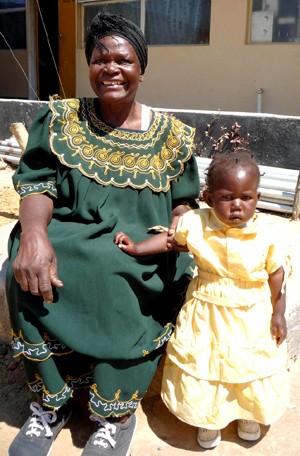
In the remote village of Chitanda in Zambia’s Central Province, two-year-old Chipo, is learning to walk. This event is remarkable, given the challenges of her young life.
Chipo’s mother passed away a month after her birth, and she was left in the care of her grandmother. Chipo was diagnosed with HIV and was severely malnourished and constantly sick. Her grandmother did everything in her power to provide Chipo with food and treatment, exhausting precious resources to travel to Liteta Hospital, more than 50 miles away.
As part of a USAID-supported program, mobile antiretroviral therapy services came to the nearby Chitanda Rural Health Center and Chipo was able to obtain treatment in her community for the fi rst time. Since beginning the therapy, Chipo is a thriving, active two year old. Mobile antiretroviral therapy outreach currently covers seven remote locations across Central Province, organized under the Provincial Health Office and supported by USAID.
Clinical Care Specialists play a critical role in each of Zambia’s nine provinces, providing training, supervision, and program coordination in support of HIV/AIDS activities. The mobile antiretroviral therapy team includes a doctor, a nurse, a pharmacy technician, and a counselor who visit every two weeks to provide testing, counseling and antiretroviral therapy services.
The community mobilizes clients to gather on mobile antiretroviral therapy outreach days. Currently 78 clients are receiving antiretroviral therapy in Chitanda village through the mobile service.
A community leader said, “We’ve seen the stigma of HIV reduced. Before, people feared to get tested, but now that services are nearby, and we have seen the people who have benefi ted and it has encouraged others to get tested.”
As the mobile antiretroviral therapy team provides services, they train the resident health center staff. Over time, program responsibility will be taken over by the local staff, freeing the mobile team to expand services to new locations.







Comment
Make a general inquiry or suggest an improvement.